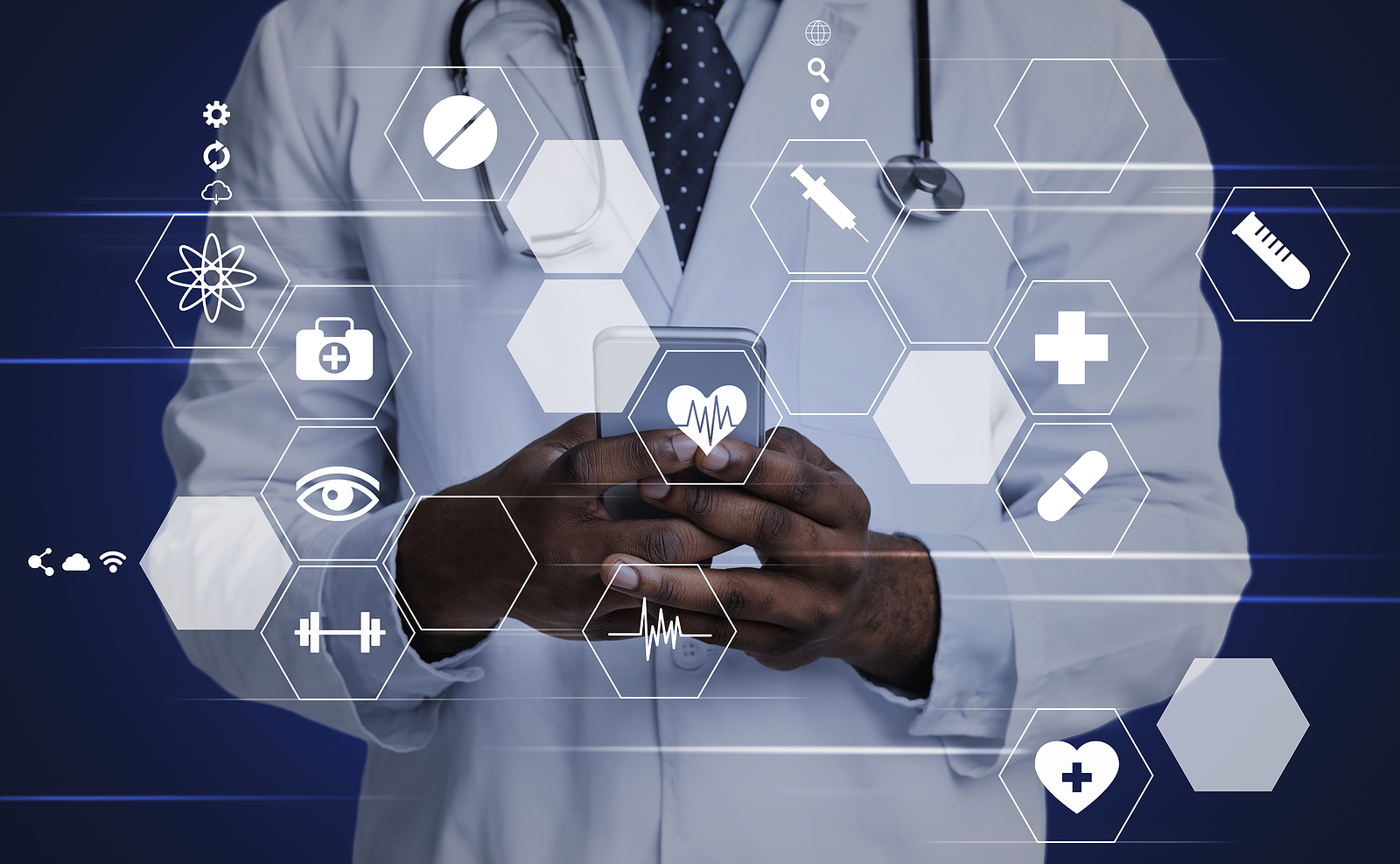“Healthcare’s Digital Revolution: (Finally) a Time for Optimism” Webinar Presented by HRA

by David L. Feldman, MD, MBA, CPE, FAAPL, FACS, Chief Medical Officer for The Doctors Company
Recently, I was fortunate enough to host an HRA webinar featuring Robert M. Wachter, MD—Professor and Chair of the Department of Medicine at the University of California, San Francisco (UCSF). He coined the term hospitalist in 1996 and is often considered the “father” of the hospitalist field, the fastest growing medical specialty in U.S. history. In this webinar, Dr. Wachter discusses why healthcare has gone digital and how this is changing how healthcare works. Below I will explore the key takeaways from the session, but I encourage you to watch the full recording to hear how Dr. Wachter describes the digital revolution as only he can.
The Rise of the EHR
For over a decade now, there has been a sharp increase in the healthcare industry’s efforts to turn traditional paper files into digital records. Indeed, as Dr. Wachter explains, between 2008 and 2017, the presence of electronic health records or EHRs grew exponentially from virtually non-existent to the norm for a whopping 96% of hospitals.
A Revolution in its Infancy
While EHRs have become the norm in healthcare, we still have a long way to go before the digital revolution truly comes to fruition. As Dr. Wachter explains, we are only starting to work on part 2 of a 4-part process:
- Digitizing the record
This is about the basic move from paper to digital, which has been generally accomplished by the rise of the EHR.
- Connecting the parts
This stage is about connecting primary care physicians to hospitals, connecting hospitals to other hospitals and so on. But it’s also about connecting third-party and patient-facing apps to healthcare providers and systems. This is the stage we are in right now.
- Gleaning meaningful insights from data
All this digitizing means it’s easier than ever to collect data. But collecting data is not enough. We need to find ways to synthesize the data and pull meaningful information from it.
- Converting insights into action
They say knowledge is power. But without action, knowledge is impotent. We must take the meaningful insights we glean and turn them into action that improves patient care and our healthcare system.
The Productivity Paradox
The productivity paradox is the phenomenon of productivity actually decreasing as we put more effort into improving productivity. In terms of the digital revolution in healthcare, while we have seen a big shift away from paper and toward EHRs, we have yet to see some of the productivity benefits that were promised by this change. But, Dr. Wachter explains, we are likely less than a decade away from tangible benefits. The first wave of the digital revolution focused on getting away from paper. Take a look at an electronic physician’s note in your EHR—it looks just like a piece of paper, right? Despite digitizing, we couldn’t get paper out of our minds. We need to reimagine the work. Perhaps one day EHRs will support physician’s notes that act like live feeds or collaborative workspaces, incorporating audio and video along with written text.
You’ve Been “Rushakoffed”
As we all know, doing a medical consult can take a lot of time. Dr. Wachter works with a diabetologist—Dr. Robert Rushakoff—at UCSF who would often spend an hour doing a single endocrine consult. Dr. Rushakoff and UCSF decided to change the game. They leveraged their EHR to scan for patients who fit criteria for blood glucose levels and diabetes issues. Then, they worked with programmers to create a dashboard masterminded by Dr. Rushakoff to show him exactly what he needs to see to assess the risk levels for those particular patients. Each morning at 6 a.m., Dr. Rushakoff spends the same hour he might take to do a single consult and uses the EHR-enabled dashboard to perform endocrine consults for all UCSF patients who fit the risk criteria. If he notices a problem, he places a recommendation directly in their chart, notifying their primary UCSF physician. The staff affectionately calls it getting “Rushakoffed.” Not only does this use Dr. Rushakoff’s time more wisely, but it led to a 39% reduction in hyperglycemia in patients and a 36% reduction in hypoglycemia. The original article was published in the Annals of Internal Medicine, May 2, 2017.
The Future of Digital Health
Will the digital revolution continue to disrupt the healthcare industry? Probably. But it will also give rise to new systems that are less institution-focused, less bound by geography, and focus more on patient-centric care. While he initially viewed this digital shift with trepidation, Dr. Wachter now proudly proclaims he sees optimism in the future of digital healthcare.
David L. Feldman, MD, MBA, CPE, FAAPL, FACS, is an experienced healthcare leader, serving for many years as chief medical officer (CMO) of the HIC/FOJP hospitals in New York City. In addition to serving as chief medical officer of The Doctors Company and TDC Group, he is senior vice president and chief medical officer at HRA, a TDC Group company. Under Dr. Feldman’s leadership, HRA provides resources and a collaborative environment designed to minimize claims and lower premiums for HRA clients by preventing patient harm, enhancing teamwork and communication, and improving documentation.